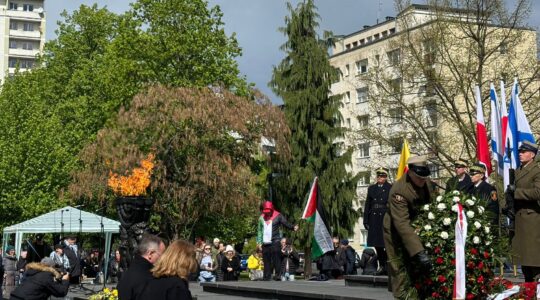THE HAGUE, Netherlands (JTA) – A cellar that was falsely described as Holland’s oldest mikvah features a forged etching of a Jewish menorah, a prominent Dutch archaeologist said.
Leendert Pieter Louwe Kooijmans, a director of the Netherlands’ National School for Archaeological Research, made the statement during an interview about the authenticity of a 13th century structure unearthed in 2004 in the southern city of Venlo. The municipality has advertised it as the oldest known ritual Jewish bathhouse ever discovered in the kingdom.
Kooijmans, whom the city recently appointed to investigate claims that the structure was really a government building’s cellar, told the television station L1 last week that the etching was probably engraved between discovery in 2004 and restoration in 2008, the year the symbol was first documented.
“Yesterday we found a photo of the wall from the initial excavation stage and, with all the good will in the world, we could not find it in the photo,” Kooijmans said. “This makes us seriously doubt the authenticity of the find.”
The city of Venlo has spent more than $2 million on excavating and preparing the structure, and then building a new wing at the municipal museum where it could be displayed. The work was conducted under the supervision of Venlo city archaeologist Maarten Dolmans, according to the Dutch media.
Kooijmans named other evidence to suggest the structure was never intended to serve as a mikvah, including the absence of stone stairs, “which almost always are built into mikvahs,” he said.
Kooijmans said he did not know who engraved the menorah on the wall of the cellar and that he is not focusing on the question in his inquiry.





